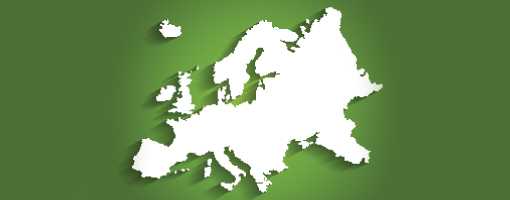The European Commission (EC) should focus on strengthening occupational pensions, rather than expanding the basic Pan-European Personal Pension Product (PEPP), the European Association of Paritarian Institutions (AEIP) has said.
In its response to the EC's consultation on supplementary pensions, the AEIP welcomed the plans to expand funded pension systems across Europe in order to ensure that European workers enjoy adequate income in retirement.
However, it argued that, to achieve this, it is "crucial" the EC provides further support for the establishment of paritarian institutions, arguing that paritarian pension institutions have consistently proven to be the most effective and socially responsible way to deliver adequate and sustainable retirement income.
"These institutions embody the European social model, being jointly managed by the social partners and serving not-for-profit purposes," AEIP executive director, Simone Miotto, said.
In particular, the group urged the EC away from enabling a wider expansion of the basic PEPP, and instead focus on improving pension adequacy by strengthening occupational pensions through the further development of the paritarian model of governance.
According to the group, paritarian funds enable wide participation, are not-for-profit and offer risk-sharing mechanisms, making them a more reliable foundation for supplementary retirement income.
In contrast, it argued that while the basic PEPP can play a role as an individual pension product where occupational systems are absent, it should not be adapted for workplace use.
More broadly, the AEIP also stressed the need for the EC to take into account the unique and differing pension landscapes seen in different member states when considering policy changes.
In particular, in the context of IORPs, the AEIP argued that supervisory convergence is neither necessary nor desirable, as it pointed out that the pension sector operates under unique national social, labour, and tax laws that are deeply embedded in each country’s socio-economic framework.
Miotto also said that the upcoming review of the IORP Directive is "critical" for paritarian IORPs, with the group's response emphasising the need to preserve the directive’s current minimum harmonisation, principle-based approach, and scope, which reflect the diversity of member states’ pension systems and their social, labour, and tax frameworks.
"A key issue that should be considered is the enhancement of the proportionality principle across the entire framework," Miotto explained.
"The application of this Directive should always take into account the size, nature, scale, and complexity of IORP’s activities.
"Without this consideration, excessive governance, transparency, or reporting requirements risk eroding the viability of these institutions, discouraging the establishment of new IORPs, and ultimately failing to support improvements in pension adequacy in the EU."
Given these concerns, the AEIP argued that national competent authorities are best placed to supervise IORPs, given their knowledge of the national legal and social context in which these institutions operate.
In addition to this, while the AEIP recognised the potential benefits of auto-enrolment, the group argued that it must not disrupt well-functioning mandatory or quasi-mandatory schemes governed through social dialogue.
"AEIP believes that any approach to auto-enrolment must be sensitive to the existing national pension landscape and avoid disrupting established, successful frameworks," it stated.
"Social partner involvement remains a core principle for any auto-enrolment design."
Latest News
-
Spanish pension plan assets rise by €916m in January
-
Black Arrow Group pension scheme completes £7m buy-in with PIC
-
Dutch pension funds report improved January funding positions
-
Finland’s Ilmarinen makes work ability management key part of sustainability work
-
UK's IBM pension scheme completes £700m buy-in with Standard Life
-
Sweden’s AP2 reports SEK 20.9bn profit amid AP6 merger
Podcast: Stepping up to the challenge

In the latest European Pensions podcast, Natalie Tuck talks to PensionsEurope chair, Jerry Moriarty, about his new role and the European pension policy agenda
Podcast: The benefits of private equity in pension fund portfolios

The outbreak of the Covid-19 pandemic, in which stock markets have seen increased volatility, combined with global low interest rates has led to alternative asset classes rising in popularity. Private equity is one of the top runners in this category, and for good reason.
In this podcast, Munich Private Equity Partners Managing Director, Christopher Bär, chats to European Pensions Editor, Natalie Tuck, about the benefits private equity investments can bring to pension fund portfolios and the best approach to take.
In this podcast, Munich Private Equity Partners Managing Director, Christopher Bär, chats to European Pensions Editor, Natalie Tuck, about the benefits private equity investments can bring to pension fund portfolios and the best approach to take.
Mitigating risk
BNP Paribas Asset Management’s head of pension solutions, Julien Halfon, discusses equity hedging with Laura Blows
© 2019 Perspective Publishing Privacy & Cookies







Recent Stories